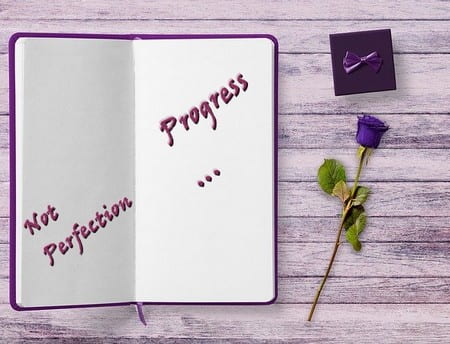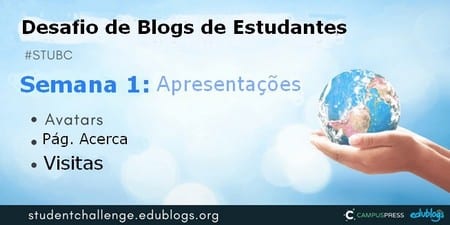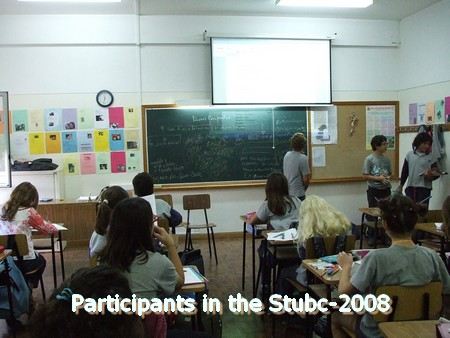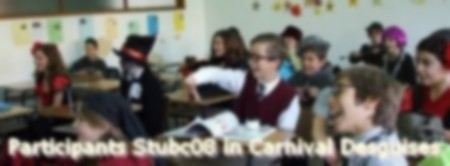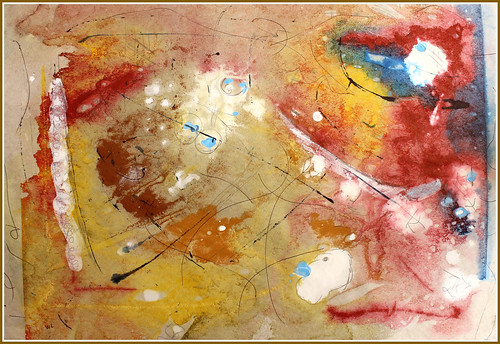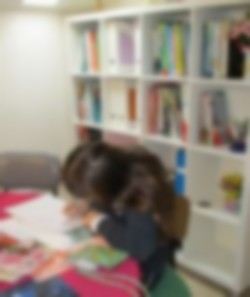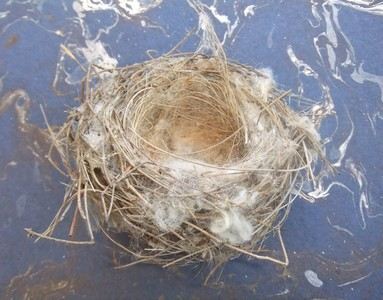 Imagem: Student Blogging Challenge Translation Authorized by Kathleen Morris
Imagem: Student Blogging Challenge Translation Authorized by Kathleen Morris
While comments keep blowing through the challenge, spreading its seeds of friendship, I’ve been picking some exquisite flowers in Mrs. Bader’s Garden.
“It was nice to learn about people… I liked to see how creative people had been” – Eliza
We can learn from others; from anyone; from another kid of our age: their creativity is contagious and enjoyable.
“…this was a new person. I have never met this person before, so it was a new experience to have.” – Ashlyn
Someone totally unknown to you enters in your own life; from now on, a new relationship may be born and develop; an invisible string has been knotted, in the world, that strengthens the union of all.
“I could choose whoever I wanted instead of being assigned to someone I already knew.” – Ashlyn
The possibility of choice is attractive in itself; it reminds us that relationships can only grow in a context of freedom and good will. Participating in the Challenge can never be reduced to an academic task: its purpose goes beyond technical expertise, but aims to touch the realm where questions about meaning may spontaneously arise.
“The experience of commenting is very exciting because you have not met that person yet and he or she might visit your blog post!” – Dariel
To be intensely aware of the invisible presence of others: that they might come and approach and touch your life; that’s how welcoming our own writing may become, a real home for a stranger.
“Commenting is exciting and challenging at the same time because you do not know what to say.” – Dariel
To look in the face the white space to be filled with a comment, as a writer staring at the blank page, as a lover wondering how to disclose his secret, as the first human person addressing another human fellow for the first time: there is something here that relates to an original experience of being authentic.
“What is challenging about posting comments… you need something that is worth reading” – Diego
Young commenters are fighting for a valuable communication: they wish to grasp the words that will really carry a personal insight, or a challenging perspective that asks for a response.
“I like that I get to read … and have something good about them to write about” – Diego
“I am hoping for someone who I commented on to read my blog and then have a good comment.” – Diego
This quest has not just one side: it longs for an answer, it is designed to be matched by a response, and its matrix is the human dialogue. The other, however, in its freedom, is not at our disposal, but the risk involved in the adventure of communication is soaked by hope.
“Even though I read the blog, commenting helps me understand what’s happening in the story.” – Jaanvi
The power of writing is at stake here: the effort to put into words what we have just read or heard brings our effective comprehension to a new level. Deep learning happens through this struggle to conquer the sense one has just grasped in a glimpse and so do strong ties, linking people together, in the clarity of carefully chosen words.
“You say … how the story is really good. I like to give compliments so I like commenting on people’s blogs.” – Jaanvi
Praising and rejoicing with other people achievements reminds me of the large world Foundation devoted to Kindness, where these Mother Theresa’ s words are reminded:
“Kind words can be short and easy to speak but their echoes are truly endless.”
And this beautiful thought by Hada Bejar that adresses Jaanvi natural kindness:
“The fragrance always stays in the hand that gives the rose.”
Ines



